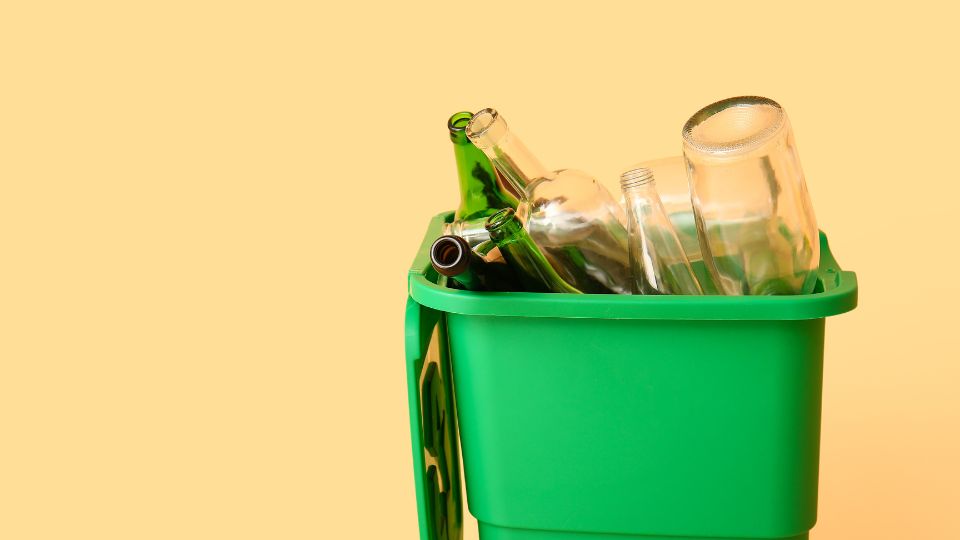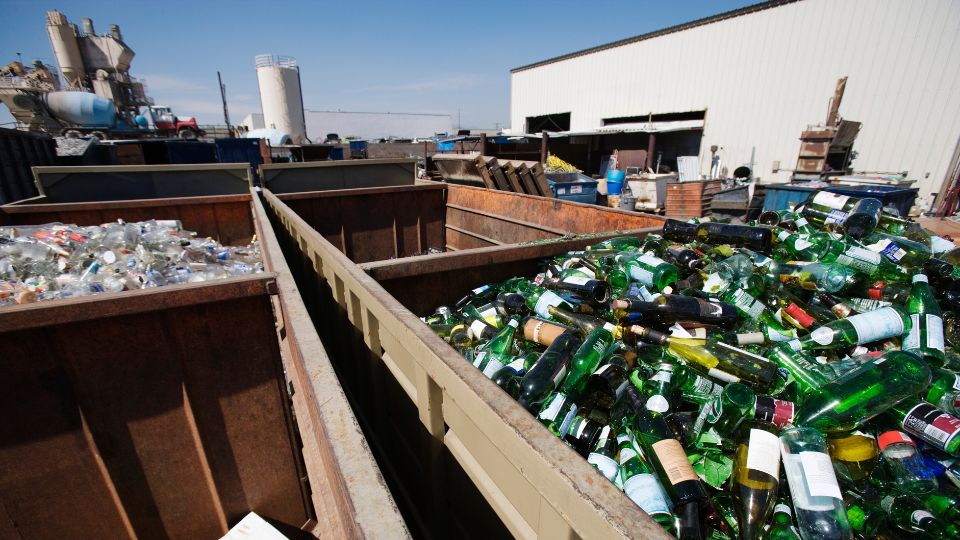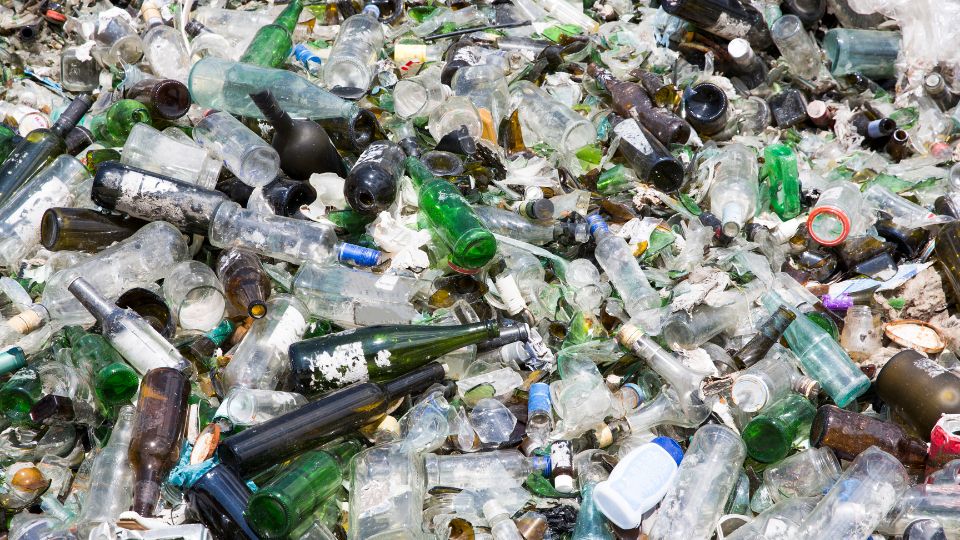
Quick Summary:
- Glass waste should be placed in designated glass waste bins instead of the general waste bin to ensure proper recycling.
- At recycling facilities, glass waste is sorted by colour, cleaned, and processed into a cullet, which is then used to produce new glass products.
- Proper disposal of glass helps conserve natural resources, reduces energy consumption, and minimises environmental harm.
Effective waste management is a key aspect of running a sustainable business. Among the many materials businesses need to dispose of, glass waste is often a topic of confusion.
This guide will answer common questions about glass disposal, provide practical advice for UK business owners, and improve your waste management strategies to improve environmental sustainability.
Table of Contents
- Can Glass Go in the General Waste Bin?
- Where Does Glass Waste Go?
- What Happens to Glass Waste?
- Does Glass Waste Affect the Environment?
- Benefits of Glass Recycling
- Conclusion
Can Glass Go in the General Waste Bin?
The short answer is no; glass should not go in the general waste bin. Placing glass in the general waste can lead to various issues, including safety hazards for waste management workers and environmental harm, such as marine pollution. Instead, businesses should use dedicated glass waste bins for proper disposal.
Where Does Glass Waste Go?
Glass waste collected from dedicated glass bins is typically sent to recycling facilities. At these facilities, the glass is sorted by colour and type, cleaned to remove any contaminants, and then crushed into a cullet. The cullet is melted down and used to manufacture new glass products, reducing the need for raw materials and conserving natural resources.
Did you know how other dry mixed recycling is sorted? Read more in our latest blog!
What Happens to Glass Waste?

Recycled glass waste goes through a meticulous process to ensure it can be reused. Here’s a breakdown of the process:
Collection – Glass waste is collected from designated glass bins.
Sorting – The glass is sorted by colour and type (e.g., bottles, jars).
Cleaning – Contaminants like labels, caps, and residues are removed.
Crushing – The clean glass is crushed into small pieces called cullet.
Melting and Reforming – The cullet is melted and reformed into new glass products, such as bottles and jars.
Recycling glass will conserve raw materials and use less energy compared to producing new glass from scratch, thereby reducing carbon emissions.
Does Glass Waste Affect the Environment?

Yes, improperly disposed glass waste can significantly impact the environment.
Glass takes thousands of years to decompose in landfills, and during this time, it can leach harmful substances into the soil and water. Broken glass can also pose a threat to wildlife and humans. Recycling glass mitigates these risks and helps preserve natural resources.
Benefits of Glass Recycling
Closed-Loop Recycling
Recycling glass back into new glass products, known as closed-loop recycling, is the most environmentally beneficial process. Every tonne of glass re-melted saves approximately 580 kg of CO2 emissions and significantly reduces the energy required to produce new glass. The UK’s glass sector boasts an impressive 74.2% recycling rate, but British Glass aims to reach a 90% collection rate by 2030.
Open-Loop Recycling
When glass quality is too poor for re-melting, it can still be used in secondary applications. This includes being processed into aggregate for construction materials, eco-cements, or used in water filtration and blast cleaning. While not as optimal as closed-loop recycling, this process still reduces waste and repurposes glass effectively.
Conclusion
Efficiently managing glass waste is crucial for environmental sustainability and the safety of your business operations. By understanding the proper disposal methods and utilising the correct bins, UK business owners can significantly reduce their environmental footprint.
Remember, glass should not go in the general waste bin; instead, use designated glass waste bins to ensure proper recycling and contribute to a greener future.
For more information on waste management and sustainability practices for your business, consult local council resources or environmental organisations.







